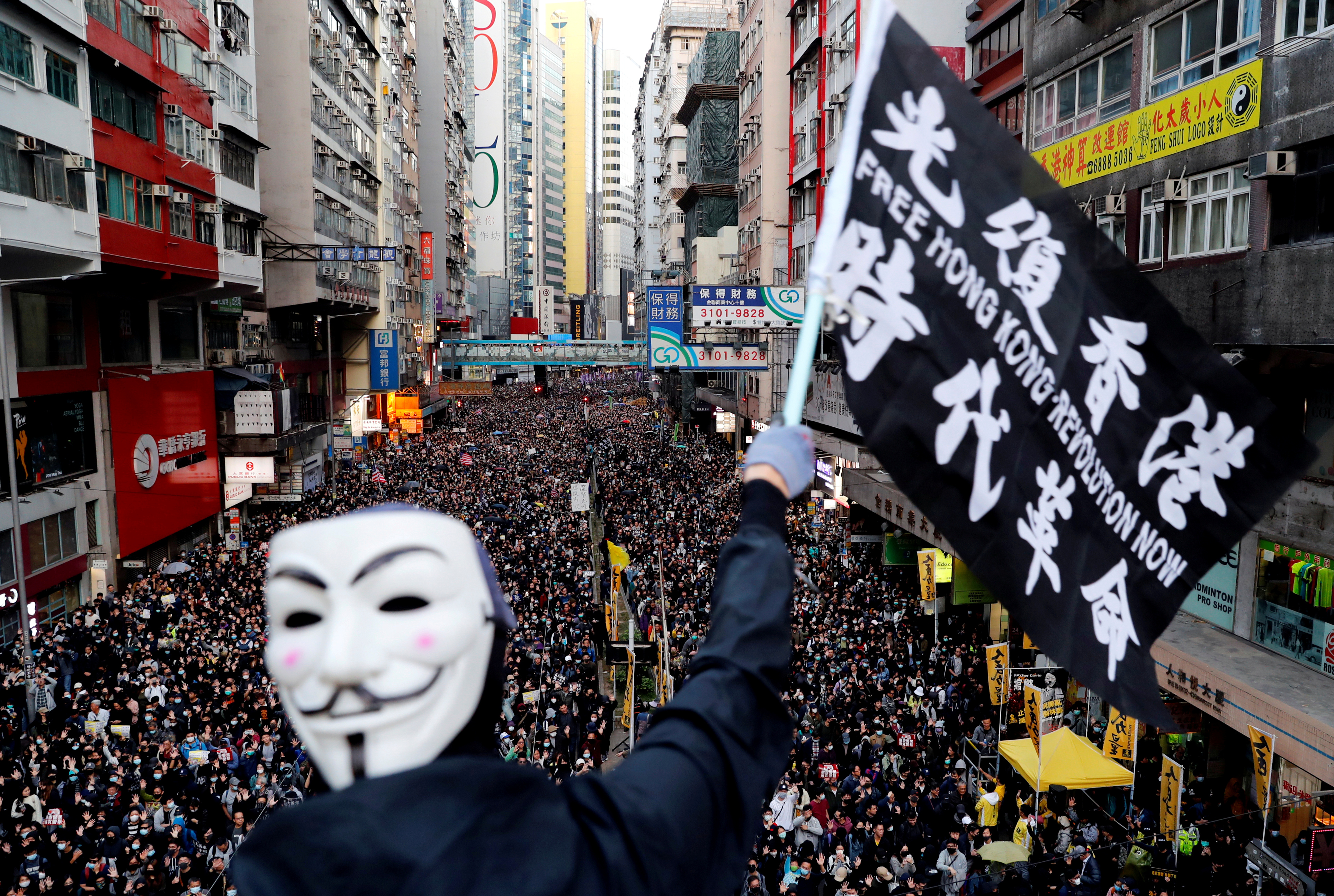
Legislators in Hong Kong have approved a new national security law - referred to as Article 23 – that gives the government new powers to crack down on all forms of dissent on the grounds of alleged treason, espionage, sedition and external interference in Hong Kong’s internal affairs.
Article 23 is the second such security law since 2020, when authorities cracked down on months of pro-democracy protests in Hong Kong, leading to the arrest or flight into exile of hundreds of activists, politicians and public figures advocating for more openness in the Chinese-ruled financial hub.
Hong Kong authorities say the new legislation – which will come into power on March 23 – is necessary to reinforce existing national security laws, while critics say it will be used to intimidate and further restrict the rights and free expression of residents in Hong Kong and overseas.
What are the offences and penalties under Article 23?
Beijing promised to preserve Hong Kong’s civil liberties for 50 years when the former British colony returned to Chinese rule in 1997. But Hong Kong’s political and free speech environment has changed dramatically since the large-scale 2019 street protests that challenged China’s rule over the semi-autonomous territory.
Passed on Tuesday, Article 23 focuses on five types of crimes: treason, insurrection, sabotage that endangers national security, external interference in Hong Kong’s affairs, and espionage and theft of state secrets.
Those found guilty of treason, insurrection, and sabotage involving external actors can be punished with life sentences in jail, while those found to be involved in espionage and sabotage – including cyberattacks – can be imprisoned for up to 20 years.
Additional terms of two to three years in prison can be added for those found guilty of working in collusion with “external forces” to commit an offence – a catch-all category that extends to foreign governments and businesses as well as international organisations.
Existing sedition offences have been expanded in Article 23, including inciting hatred against the Chinese Communist Party leadership, which is punishable by up to 10 years in jail.
In preparation for any “unforeseen circumstances”, Hong Kong’s legislators are also empowered to create and punish new offences that arise by up to seven years in prison.
Police have also been given sweeping new powers, including an increase in the time people can be detained as suspects without charge from 48 hours to 16 days.
Suspects can be prevented by police from meeting lawyers, and those granted bail may have their movement and communication restricted.
The new law can also apply to actions that take place outside Hong Kong – by both residents and businesses – a move seen as key in China’s pursuit of overseas pro-democracy activists and critics described as “anti-China elements”.
Activists based overseas also face cancellation of their passports, and those suspected of providing financing to overseas critics, including parents, risk imprisonment.
What are critics saying?
The Index on Censorship said, “The passing of Article 23 legislation is a very dark day for Hongkongers.”
Sarah Brooks of Amnesty International said the new legislation imposes “mainland Chinese legal concepts of ‘national security’ and ‘state secrets’ directly into Hong Kong law in a way that is deeply disturbing for the city’s future”.
The passing of #Article23 sends the clearest message yet that the Hong Kong authorities’ hunger to accommodate Beijing’s will outstrips any past commitments on human rights.
— Amnesty International (@amnesty) March 19, 2024
The Inter-Parliamentary Alliance on China (IPAC) – an international alliance of parliamentarians from democratic nations working on relations with China’s Communist Party – said Article 23 is “eye watering in the repression it allows and the chilling effect it will create”.
“Under the full glare of the international media, and in a matter of days, the Hong Kong authorities have rushed through the most repressive national security legislation in the City’s history,” the IPAC said, calling on the international community to finally take action on events in Hong Kong.
IPAC STATEMENT ON THE PASSAGE OF ARTICLE 23 IN HONG KONG
Under the full glare of the international media, and in a matter of days, the Hong Kong authorities have rushed through the most repressive national security legislation in the City’s history.
The substance of the law is… pic.twitter.com/vB5glE5P1B
— Inter-Parliamentary Alliance on China (IPAC) (@ipacglobal) March 19, 2024
Last week, the US Congressional-Executive Commission on China – which provides advice to the United States Congress – called on Washington to oppose Article 23.
“An ever-expanding notion of national security will only make Hong Kong less safe for US businesses and citizens living in Hong Kong as well as Hong Kongers seeking to exercise their fundamental freedoms,” the commission said in a letter to US Secretary of State Antony Blinken.
What has China said?
China’s Foreign Ministry office in Hong Kong has condemned US criticism of the law, saying Washington must “immediately stop the political manipulation and interference in Hong Kong affairs”.
Both the Chinese and Hong Kong governments say the Beijing-imposed security law in 2020 restored stability after the 2019 protests.
Officials now insist the new security law balances security with safeguarding the rights and freedoms of Hong Kong residents.
Hong Kong’s government said Article 23 is needed to prevent a recurrence of the protests of 2019, and that its provisions will only affect “an extremely small minority” of disloyal residents.







